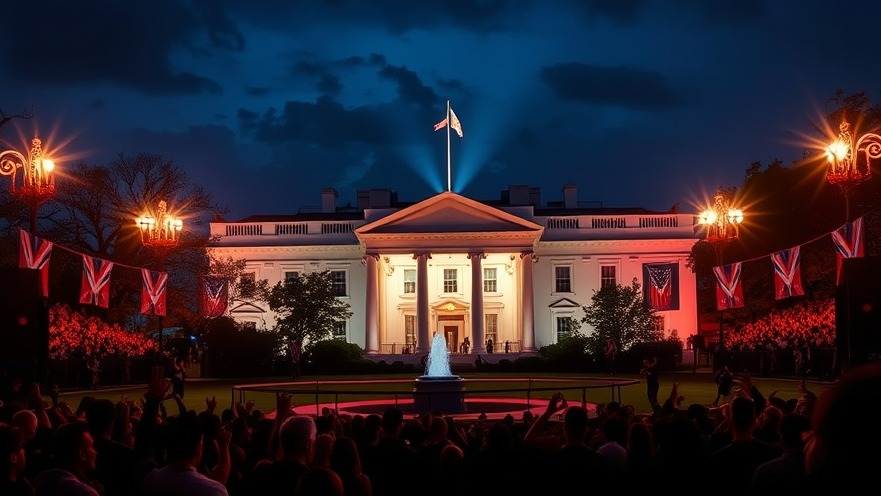
The Unique Proposal: An Arena on the White House Lawn
In a move that has sparked both excitement and controversy, UFC president Dana White has announced ambitious plans to construct a mixed martial arts arena on the White House lawn. This project seeks to coincide with the United States' America 250 celebrations, marking a significant milestone in the nation’s history. The arena is envisioned as a center for MMA events, aiming to elevate the profile of combat sports in the heart of the American political landscape.
Cultural Impact of Sports in Modern America
This announcement comes at a time when sports, particularly mixed martial arts, are not just games but cultural phenomena. In an era where streaming and social media play pivotal roles, the UFC's strategy to place an arena at such a historically significant venue highlights the blending of sports and culture. The UFC has consistently targeted urban centers to drive its popularity, and an arena at the White House heightens that urban appeal while potentially attracting millions of fans worldwide.
What This Means for Remote Workers
While mixed martial arts might seem far removed from the everyday realities of digital nomads, the creation of an arena on the White House lawn introduces interesting implications for remote workspaces. The ongoing evolution of public spaces as multifunctional venues can be a template for rethinking work environments. Imagine how public spaces can serve diverse roles, just like a workspace should adapt to include zones for collaboration, relaxation, and creativity.
Embracing Change: Designing Adaptive Workspaces
As our environments continue to evolve, understanding ergonomics becomes increasingly crucial. Just as an arena requires careful design to enhance the spectator experience, workspaces must be thoughtfully arranged for productivity and comfort. With the potential influx of tourists drawn by the UFC arena, local vendors could cater to remote workers, providing an inspiring atmosphere that blends work and pleasure.
Future Predictions: The Arena’s Impact on Local Economy
The proposed arena would likely serve as more than just a fighting venue; it could act as a catalyst for significant economic growth in Washington, DC. The influx of visitors for events would create high-demand zones for dining, lodging, and entertainment. This economic boost shapes not only local commerce but also reflects the growing trend towards integrating public events with community wellbeing and job creation.
Decisions You Can Make With This Information
For digital nomads, understanding these cultural developments can reshape choices about where to work. Centers of culture, like the one anticipated with the UFC arena, attract a creative crowd and provide networking opportunities. Embracing environments that mix leisure and work can enhance productivity and creativity, providing a dynamic avenue to approach remote work.
Conclusion: Embracing the Future of Workspaces
The integration of a UFC arena on the White House lawn is a powerful statement on the intersection of sports, culture, and remote work. As we adapt to the increasing flexibility of our work environments, we should embrace spaces that foster creativity and community. For those in the field of ergonomics, this initiative underscores the importance of designing spaces that meet the needs of modern workers. Don’t just be an onlooker—consider how you can leverage such developments in your own workspace designs as they continue to unfold.
 Add Row
Add Row  Add
Add 




Write A Comment